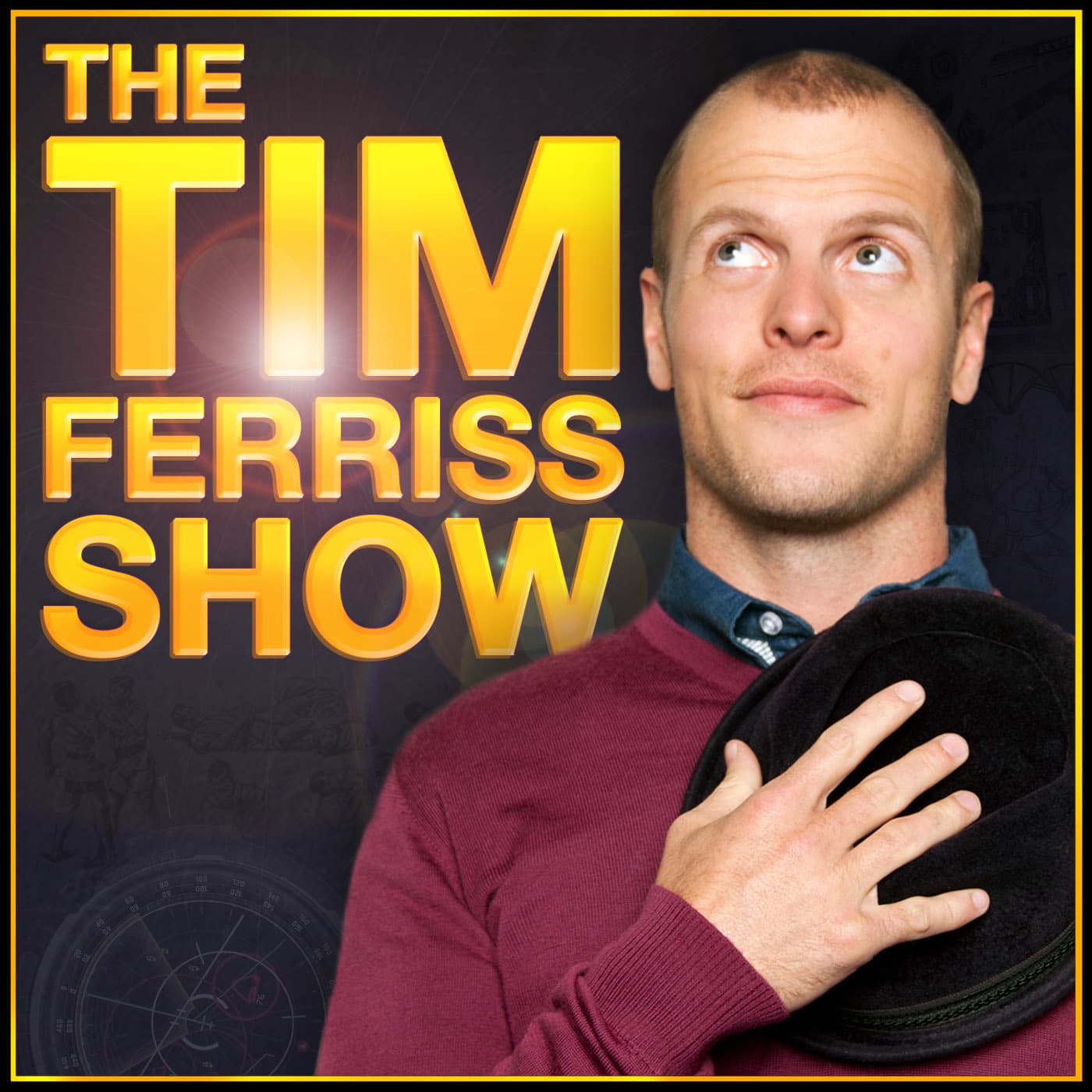
January 8, 2025 • 1hr 48min
#786: Tactics and Strategies for a 2025 Reboot — Essentialism and Greg McKeown
The Tim Ferriss Show

Key Takeaways
- Essentialism vs Effortless: Essentialism is about focus and figuring out what's essential, while Effortless is about simplification and doing essential things in the right way
- Personal Quarterly Offsite: Regular review of what's essential vs non-essential and how to make shifts effortless
- 1-2-3 Method: Daily system of identifying 1 most essential thing, 2 essential/urgent things, and 3 maintenance items
- Radical Gratitude: Being thankful even for difficult things as a path to meaning and growth
- Deep Listening: The importance of truly listening to others without immediately trying to solve their problems
Introduction
Greg McKeown is the author of two New York Times bestsellers - "Essentialism: The Disciplined Pursuit of Less" and "Effortless: Make It Easier to Do What Matters Most". In this wide-ranging conversation with Tim Ferriss, Greg discusses strategies for identifying and focusing on what's truly essential, finding meaning in suffering, and approaching goals and habits in a more effortless way.
Topics Discussed
Essentialism vs Effortless (21:46)
Greg explains the key differences between his two books:
- Essentialism is about:
- Focus and figuring out what's essential
- Exploring what matters most
- Eliminating non-essentials
- Executing on the essential things
- Effortless focuses on:
- Simplification
- Doing essential things in the right way
- Making important tasks easier
Personal Quarterly Offsite (29:55)
Greg outlines his process for regular strategic review:
- Three key questions to address:
- What essential things are we under-investing in?
- What non-essential things are we over-investing in?
- How can we make the necessary shifts more effortless?
- Implementation approaches:
- Can be done alone or with an accountability partner
- Doesn't require travel - can be done in 1-2 hours
- Focus on facing reality and getting clear on direction
The 1-2-3 Method (1:10:38)
Greg shares his daily prioritization system:
- Components:
- 1 most essential thing for the day
- 2 essential and urgent items
- 3 maintenance tasks that would make tomorrow harder if not done
- Benefits:
- Creates clear definition of "done" for the day
- Prevents endless task expansion
- Ensures focus on what's truly important
Finding Meaning in Suffering (1:25:15)
Greg discusses the importance of meaning and gratitude:
- Radical Gratitude:
- Being thankful even for difficult circumstances
- Opens possibility for finding meaning in suffering
- Different from toxic positivity - acknowledges real pain
- Post-Traumatic Growth:
- Possibility of emerging stronger from trauma
- Moving beyond just resilience to actual growth
- Using suffering as raw material for meaning
Deep Listening (1:39:23)
Greg explores the power of truly listening to others:
- Key elements:
- Based on Carl Rogers' therapeutic approach
- Focuses on understanding rather than solving
- Creates space for deeper connection
- Benefits:
- Helps identify root issues rather than surface problems
- Builds trust and openness in relationships
- Creates healing through being truly heard
Making vs Managing (1:16:34)
Tim shares insights about choosing meaningful work:
- Two key components:
- Making - creating something new
- Mastery - developing expertise
- Importance of inspiration:
- Choose work that energizes rather than depletes
- Focus on moving toward goals rather than away from problems
- Build multiple sources of meaning and identity
Conclusion
The conversation provides a rich framework for approaching life and work with greater intentionality and meaning. Key themes include the importance of identifying what's truly essential, making important tasks more effortless, finding meaning even in difficult circumstances, and creating deeper connections through better listening. The practical tools shared - from the Personal Quarterly Offsite to the 1-2-3 Method - offer concrete ways to implement these principles in daily life.